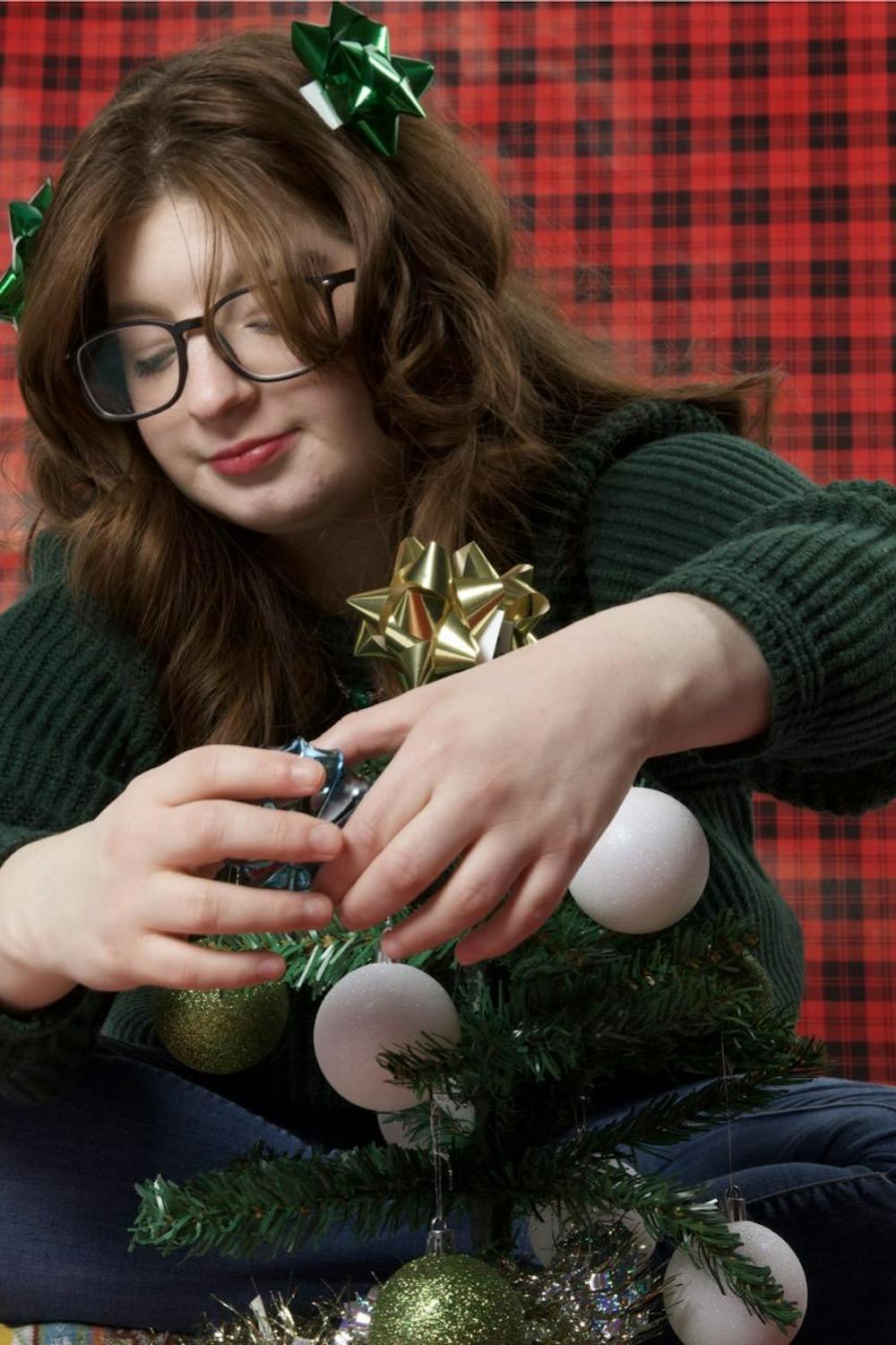Hannah Amos is a third-year journalism major and writes columns for the Daily News. Her views do not necessarily reflect those of the newspaper.
Christmas is complicated.
It’s either associated with religion or commercialization. It is both a highly loved holiday and a highly criticized holiday.
The Rasmussen Reports stated 62 percent of American adults believe Christmas to be too commercialized in 2021. The Pew Research Center stated 56 percent of American adults in 2017 believe religious aspects of the holiday have become less emphasized.
Despite the views, 90 percent of Americans and 95 percent of Christian Americans celebrate Christmas, according to the Pew Research Center. However, in 2017, only 46 percent of Americans said they religiously celebrate the holiday.
I fall into the category of celebrating it culturally but not religiously. Instead of associating Christmas solely with religious zeal or buying as many decorations and gifts as possible, I associate it with love, family, kindness and charity.
My family is something that I’m very appreciative and protective of. Besides those immediate to me, my extended family lives out-of-state and over 10 hours away by car.
I’ve never really had my grandparents, aunts, uncles or cousins at my home for the holidays, but that doesn’t mean they weren’t with me.
One of my favorite memories of Christmas—though it was a small moment—is sitting in the kitchen with my mother reading my grandmother’s handwritten cookie recipe that’s been passed down from mother to daughter for decades.
I sat, swinging my legs, reading measurements as I’d done every Christmas, and a small part of me wondered how long this tradition had been passed down.
Things like that have resonated with me. That’s what makes the holidays so important to me.
Christmas is complicated, but I think that honoring the past traditions of your family is often considered small or forgotten.
Traditions such as the Christmas tree, a favorite of mine, along with the ongoing debate of whether the tree should be a real or fake one. Controversial opinion: it should be a real tree.
I favor real trees, not because of the smell, though that’s a big aspect of it, but because I enjoy going with my family and picking out just the right tree.
Every detail of each tree is brought into the debate: the size, the height, the fullness, etc. Every family member has an opinion. Though I’m not always listened to, I always root for the underdog — the Charlie Brown-esque Christmas tree.
Whatever tree is picked is then brought home to be decorated with wonky ornaments made in elementary school, fancy ones passed down, and silly ones that represent small windows of our likes.

For every ornament, there’s a story.
Our ornaments have survived an apartment fire, travel and, most importantly, my cat’s constant need to swat at anything fragile.
I like hearing stories about the part of my family I am physically disconnected from. In being so far away from the majority of them, stories are all that I have to go off of.
Christmas is sentimental, and I think that at times that gets forgotten. Religious rhetoric will say greed takes over the holidays, saying the narrative of Christmas has become lost in profit and materialism, and maybe it has.
Going back to the 62 percent, according to Statistica, in 2023 the average spent to buy Christmas gifts was around $923 with retail sales being projected between $957. 3 billion to $966.6 billion.
The hustle and bustle of spending money and buying “the perfect gift” more often than not causes a lack of clarity on the most precious gift in front of you: your loved ones.
I may have a nostalgic view of Christmas, but I don’t think it’s a problem. I’m content with my small, simplistic view of Christmas.
I don’t need to argue if it’s too religious or not religious enough — if it’s capitalistic or not. I’ll enjoy what I can with Christmas, and, most importantly, enjoy it with the people that I love.
Contact Hannah Amos with comments at hannah.amos@bsu.edu or on X @Hannah_Amos_394.




